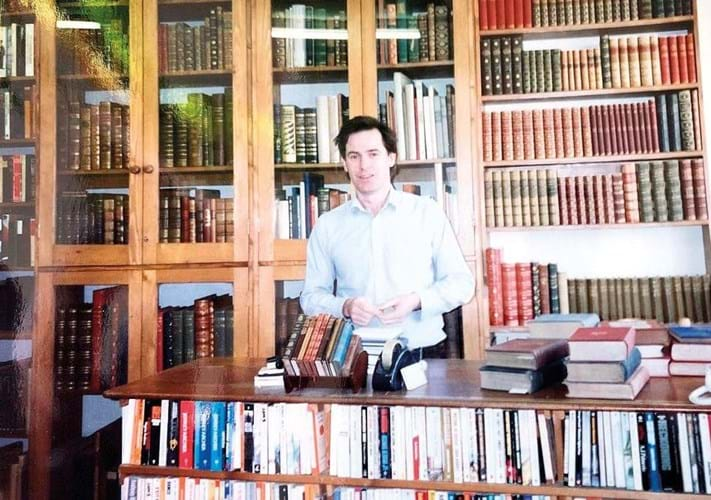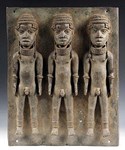Starting in 1965 as a 13-year-old boy, he scoured the junk shops and in 1969 issued his first catalogue of detective fiction. In 1976 he took over the lease of Colin Page’s original shop in Lewes.
A determined, hardworking, and handsome young man, he devoted his life entirely to his wife Yasmine and to the rare book trade.
He built his business in the traditional way – working his way through the hierarchy in the trade as it then existed.
The small shop in Lewes High Street was a success, with bigger dealers allowed into the book room at home.
Andrew made house calls, spent time on the road, became active at local auctions and slowly graduated into the bigger London auctions, a career ladder most pre-internet dealers will recognise.
Along the way he earned money, stock, contacts, private clients, and respect.
In 1989 he bought a large building in Lewes High Street where the business has traded ever since, housing an impressive, ever-changing stock in many different fields and at many different price levels in an array of back rooms.
His shop was soon one of the prime antiquarian bookshops in the south of England, rivalled only by Colin Page owned by John Loska in Brighton. The two shops enjoyed a close relationship for many years and Brighton and Lewes became the natural first port of call for all collectors and dealers in the area.
Among the unusual collections he and I bought together in the early 1980s was the library at Vaila Hall, a large mock gothic Victorian pile on a tiny island off the Shetlands.
The whole library was shipped precariously back in a small dinghy.
We also found a large collection of original Hiroshige Japanese prints in a tea chest at a Christie’s house sale and later sold them individually at Christie’s King Street. He also handled the library of the late Malcolm Muggeridge.
A canny dealer with a dry sense of humour, Andrew loved dealing, time and again cramming a massive array of stock into his basement, which he sold in total on two occasions.
Despite suffering from myotonic dystrophy for many years he refused to retire, even in failing health, and remained at the helm until the very end. He will be remembered and missed by many.
By Charles Russell (russellrarebooks.com)













